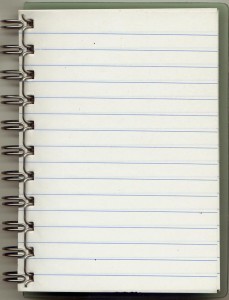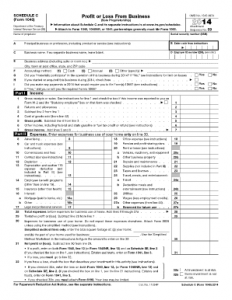 Sharon Yntema, bookkeeper and author, shared her good experience with a small publisher in a recent blog and here she shares her story and good advice for the business of being an author.
Sharon Yntema, bookkeeper and author, shared her good experience with a small publisher in a recent blog and here she shares her story and good advice for the business of being an author.
In 1981, I received my first author royalty check. Up until that point, my tax returns had been totally straightforward: one W2 was all I had to deal with, and so I did my taxes myself.
I decided “how hard could it be to deal with just one 1099-MISC as well?” and so did my 1981 taxes myself, without filing a Schedule C. I included my writing expenses as itemized deductions. About 6 months later, I received a notice that I was being audited by the IRS.
This was pretty terrifying, mostly because although I’d kept a written log of my expenses, I didn’t have receipts for many of the items. As a result, I worried that most of the deductions would be disallowed and I would owe back taxes, plus a penalty, none of which I had savings to cover. The appointment was at 7:30 a.m., an additional problem since it was hard to find ad hoc childcare for that time of the day.
I gathered together all the documentation I could find and brought it to the appointment. It turned out I also hadn’t paid Self-Employment tax, since I didn’t even know there was such a tax to be paid.
The IRS agent and I went through every detail of what should have been done, and it turned out that there were deductions I didn’t take that I could have. My log book of expenses was considered legitimate enough that my lack of matching receipts was not a problem. The result was that I filed a Schedule C, paid SE tax, but my total income was lowered enough that I had overpaid my taxes, and would be getting a $52 rebate!
 The only reason this situation turned out so well is that I had kept a small notebook of all my possible expenses. In fact, the IRS will still accept this kind of documentation when receipts are not available. Every time I spent any money that I thought might relate to writing, I wrote down the date, the amount, and a brief description. So, PLEASE go out and buy and inexpensive lined blank book or something similar, and start doing this now, if you don’t already track your expenses!
The only reason this situation turned out so well is that I had kept a small notebook of all my possible expenses. In fact, the IRS will still accept this kind of documentation when receipts are not available. Every time I spent any money that I thought might relate to writing, I wrote down the date, the amount, and a brief description. So, PLEASE go out and buy and inexpensive lined blank book or something similar, and start doing this now, if you don’t already track your expenses!
It’s also good to have a small box to store your receipts, ideally with a bunch of envelopes to help sort the receipts: one for travel, one for writing supplies such as pens, paper, computer ink, one for books you buy for research, one for related travel expenses, etc. But the most important thing is to keep the log up to date. Don’t try to do it just once at the end of the year if you can help it: that’s an overwhelming, time consuming project. There are also lots of minor expenses that you might not remember in great detail if you don’t make a note when it happens.
One of the best ways to track your expenses is to know what the IRS allows on Schedule C. Here is a link to Schedule C if you want to check it out: http://www.irs.gov/pub/irs-pdf/f1040sc.pdf.
Briefly, here are some of the kinds of the most common expenses you are allowed to deduct on Schedule C:
 Advertising – your website costs, online ads and publicity flyers for talks you give that you paid for
Advertising – your website costs, online ads and publicity flyers for talks you give that you paid for- Car & Truck Expenses – Mileage costs ($0.56/mile in 2014 – although you MUST keep detailed mileage records to use this. But anywhere you drive related to what your writing can be included
- Legal and Professional Services – any tax or legal service that you use for work, and of course your payments to Swenbooks
- Office Expenses – Little expenses such postage, copying, cds for making copies of your book
- Supplies – Physical items that get used up in your work: computer ink, paper, pens, notebooks (this category is not always clearly delineated from Office Expenses.)
- Travel Expenses – cost of traveling (related to work) other than in your car (bus, taxi, plane fare, hotels)
- Meals & Entertainment – In this case, “entertainment” means when you take someone out for a meal or event related to your writing. The one odd thing about this category is that you can only take ½ of the cost as a deduction. Apparently the IRS believes you would have eaten anyway, so you can’t say it was all work-related
- Other Expenses – licensing, research materials, dues to professional organizations, workshops about your topic, even films if they directly relate.
The above is just a general introduction to Schedule C and not meant to be more than that. If you have specific questions about your situation, it would be a good idea to talk to a tax accountant or do further research. There are other deductible expenses, and a tax software program might be able to help you.
Here are a couple of ebooks that go into taxes for writers in much more detail:
- Tax Tips for Authors, by N.S. Smith and EM Lynley (excellent, with many examples – also goes into depreciation, home office deductions, self-employment tax, and quarterly estimated tax payments.)
- Author Bookkeeping Made Easy, by Nick Vulich (more specifically geared towards self-publishing authors, but includes some useful information on bookkeeping software that also help with tax preparation.)

Excellent summary and great advice. Thanks!
I am used to useful information from you, but this one was particularly important to me. I received my first royalty statements from my book “The Gifts of Grief: Finding Light in the Darkness of Loss” and found several nuggets in here of which I was unaware. Thank you, thank you! Blessings come in the most unexpected places. Therese
So grateful you stopped by here Therese Tappouni, and congratulations on your first royalty check from The Gifts of Grief: Finding Light in the Darkness of Loss (Hierophant).
Thank you. This is really good to know. I’m glad it had a happy ending for you – it makes me less afraid of the day when I finally get summoned to an audit. Cheers!